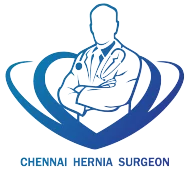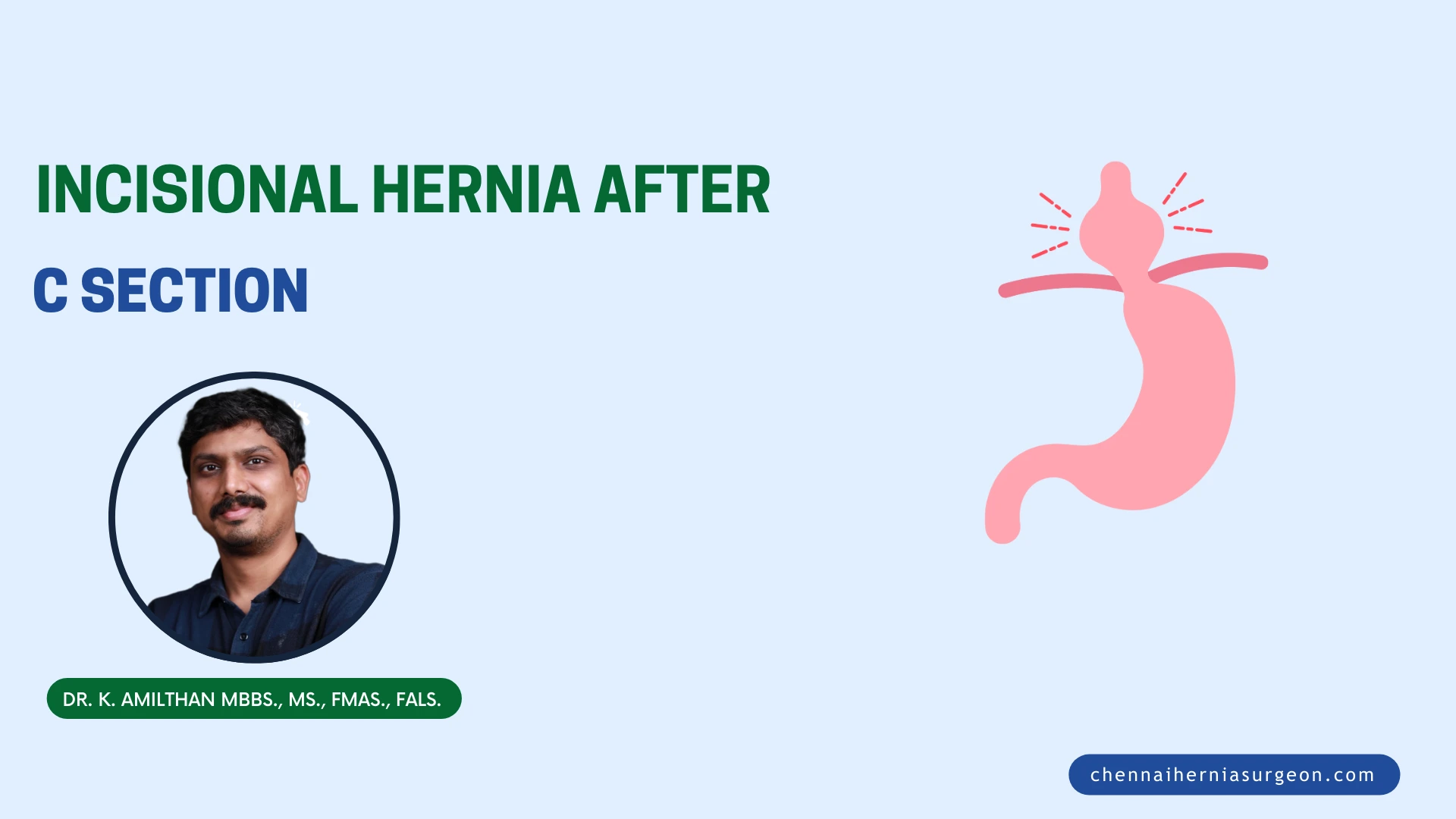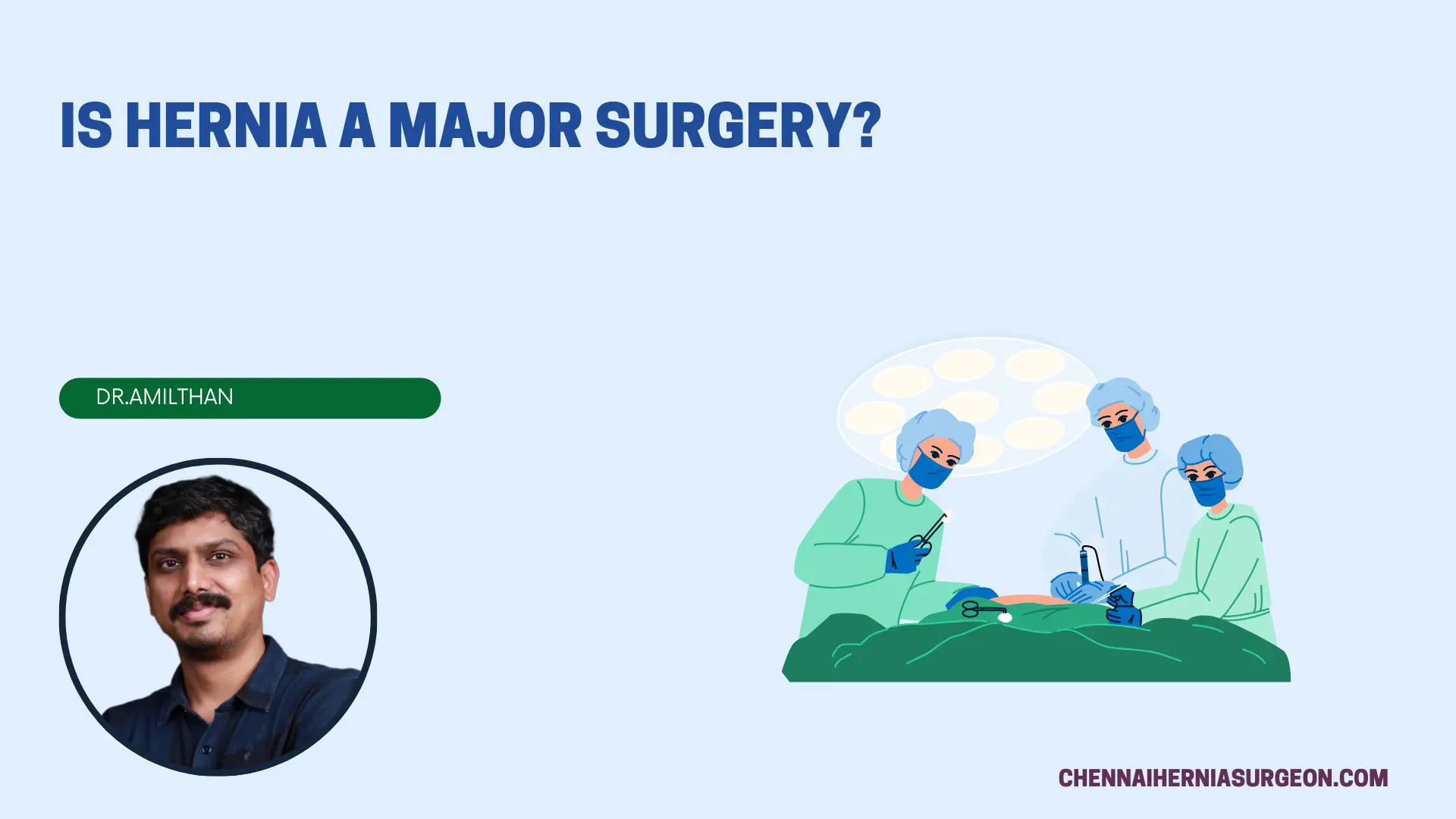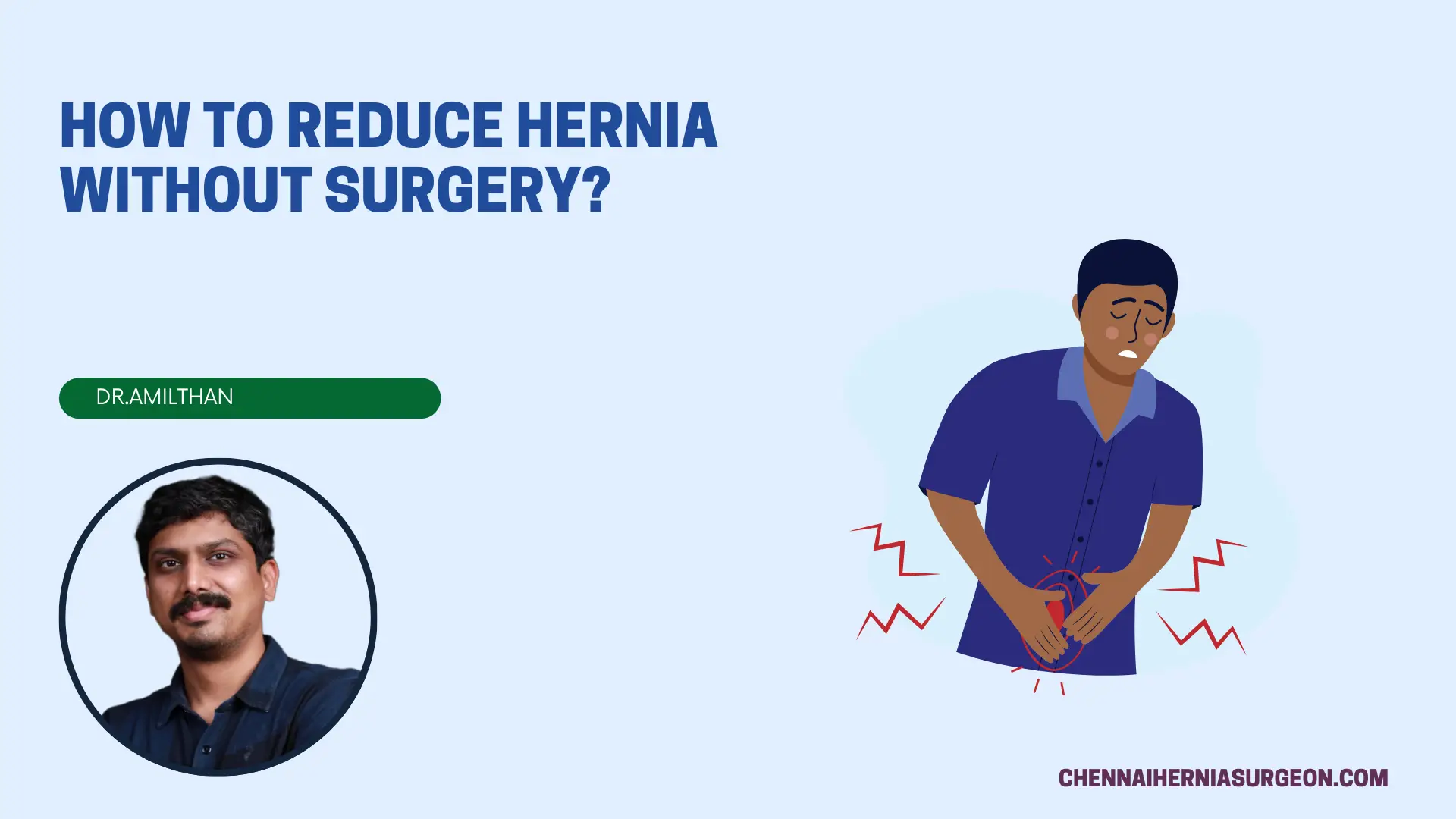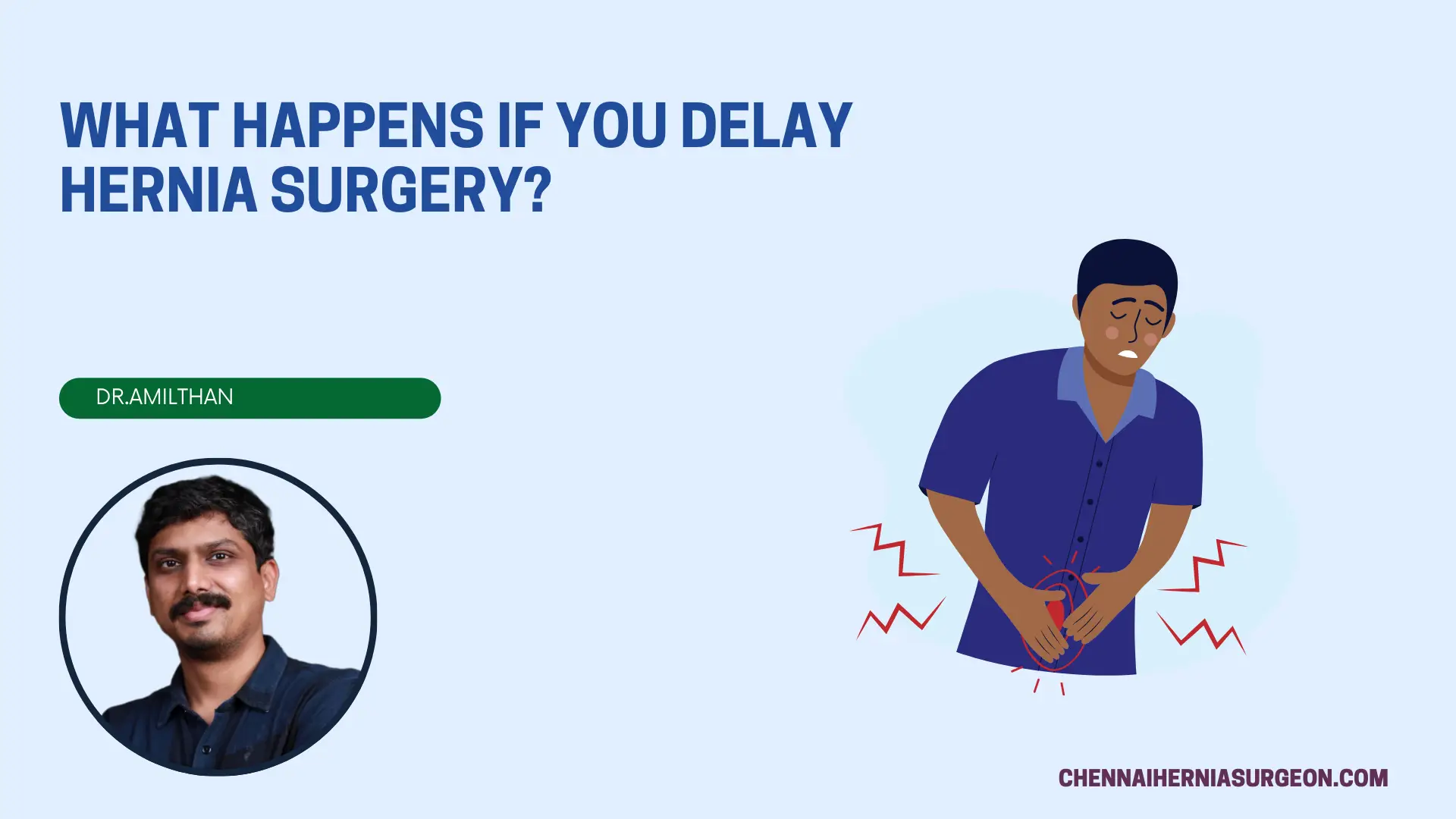An incisional hernia that occurs after a C-section is called a postpartum hernia. It is a complication that arises due to the C-section procedure.
If you sense a bulge accompanied by pain or discomfort in the area of your C-section scar, it indicates an incisional hernia.
Incisional hernias after a C-section may or may not be symptomatic. But they require surgical intervention for a complete cure.
Incisional Hernia After C-Section
If the abdominal lining or bowel parts come through the caesarean surgical incision scar, it is an incisional hernia that occurs after a C-section.
Incisional hernias after a C-section may not be common. Nevertheless, they can be expected due to reasons such as weak abdominal muscles and unhealed incision scars.
According to a 2014 study, females who had a midline incision for C-section delivery were at higher risk for hernias after the procedure. Also, the risk was higher during the first three years after a C-section.
Symptoms of Incisional Hernia After a C-Section
Symptoms that help identify an incisional hernia after a C-section include
- Bulge near the incision site
- Pain in the local and surrounding region
- Nausea
- Vomiting
- Constipation
- Diarrhea
- Fever
Symptomatic incisional hernias after a C-section indicate the severity of the hernia and the requirement to deal with it medically as soon as possible.
A symptomatic incisional hernia may be irreducible and indicate an obstructed or strangulated hernia. A complicated hernia will usually be accompanied by sharp pain.
Causes of Incisional Hernia After a C-Section
Incisional hernias after a C-section occur due to
- A large cesarean incision that has not healed
- Diabetes or renal issues
- Weak abdominal tissues
- Obesity
- Being involved in strenuous physical activities before the healing of the incison
Treatment for Incisional Hernia After a C-Section
If the incisional hernia is asymptomatic, it can be managed without surgery. But an incisional hernia after a C-section poses a threat of damaging more of the wound region, leading to possible bleeding and infection. So it is best to electively operate on an incisional hernia after a C-section.
Treatment options available to treat incisional hernias after a C-section include
- Open surgery
- Laparoscopic surgery
- Robotic surgery
The choice of surgery is based on the severity of the hernia.
A mesh will be placed over the weak area to prevent the recurrence of the hernia.
Recovery from Incisional Hernia After C-Section
Based on the choice of surgical methods, the recovery period after an incisional hernia repair may vary.
Major open and laparoscopic surgeries will take around two to three months for a complete recovery.
With minimally invasive surgeries, you will be able to return to work after two or three weeks of rest. You can also begin driving after stopping pain medications.
Ultimately, the recovery period differs for every patient, and it depends on the individual’s overall health, age, and other factors.
Conclusion
Incisional hernia after a C-section can be discomforting. An obstructed and strangulated incisional hernia can be fatal. So. Instead of bearing the pain, it is best to go with hernia repair for the better health of the body.
Also, take adequate rest after a C-section to prevent incisal hernias. Put away any strenuous physical activity and take a protein-rich diet to allow the abdominal wall to heal and strengthen.
An incisional hernia after a C-section can be easily repaired with the latest surgical procedures that cause less pain and grant a faster recovery.
For more information on incisional hernias after a C-section, contact a hernia specialist to learn more about them and how to deal with them.
